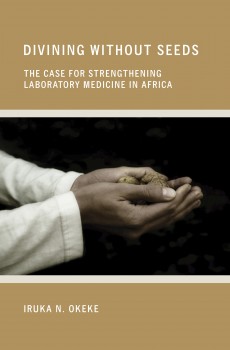3 Questions for Biology Professor Iruka N. Okeke

Details
3 Questions
Associate Professor of Biology Iruka N. Okeke takes aim at a serious healthcare issue with global ramifications in her new book Divining Without Seeds: The Case for Strengthening Laboratory Medicine in Africa (Cornell University Press). In the book, whose title is a reference to traditional Yoruba medicine, Okeke offers compelling case studies and weaves in her own experience as a young pharmacist in a hospital in Lagos to examine“diagnostic insufficiency.” The problem: While infectious disease is the most common cause of illness and death in Africa, few patients are tested and properly diagnosed. Improper diagnosis leads to improper treatment, prolonged infections, larger outbreaks, and the growth of drug resistant strains of these diseases. Okeke's book shows how this situation can and must change.
What inspired you to write this book?
Iruka Okeke: As a scientist, I've been studying drug resistance and infectious diseases in Nigeria and working closely with people who work in clinics and hospitals. What I was seeing is that the tools that we were using for our research are so simple, if they were applied to medical patients the patients would get a much better quality of care.
You make a strong case for change in the book. What is the audience you are aiming at?
IO: It ranges from scientists, who I would like to appreciate that there can be more applications for what they do in healthcare, as well as health policy makers who I want to understand some of the things we need to improve healthcare. Policy makers can get the impression that improving healthcare in Africa requires some kind of scientific innovation that would be technical and expensive, whereas there are lots of cheap tests that can be used to improve health.
Can you give us an example?
IO: One is malaria. There are quite a few studies coming out of Africa demonstrating that the protocol has been that if a patient has a headache and fever you assume it's malaria. But if you test patients you find out a large proportion don't have malaria. In some cases, depending on the location in Africa, it's more than half. Someone with a headache and fever could have typhoid, or the flu, or several other infectious diseases. Untreated, all of these illnesses can eventually kill the patient. Well, we can diagnose malaria now with a rapid diagnostic test that is just like a pregnancy test. The solution in Africa is a mixture of bringing new resources as well changing the mindset, of African health professionals and policy makers as well. There have been a lot of donors paying attention to supplying medicines to Africa, but if they would supply diagnostics with the medicines they would be better used and it would be more cost effective.



